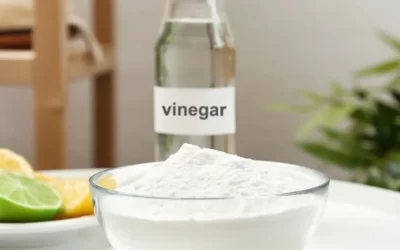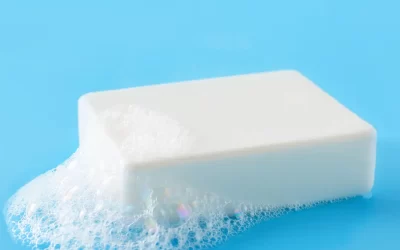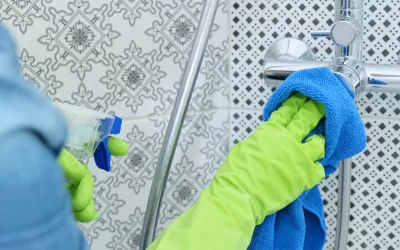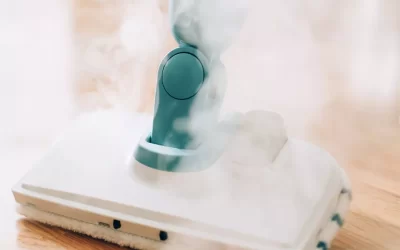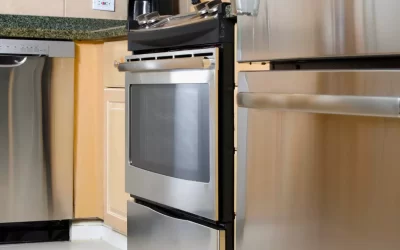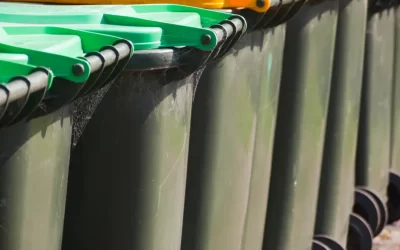Top Tips For Cleaning Your Fridge
Most people regularly clean their kitchen, and sometimes they do a deep clean of things like the oven. One often-overlooked kitchen appliance, one that should be cleaned more often, is your fridge. Cleaning your fridge regularly ensures your fridge is in top working order for longer. Regularly rotating food throughout the fridge also means that you are less likely to end up with unpleasant smells from forgotten food left in the back of the fridge and well past its use by date. This article contains 5 tips to make cleaning your fridge as simple as possible.
If you’ve never cleaned your fridge before, then do it sooner rather than later.
Before
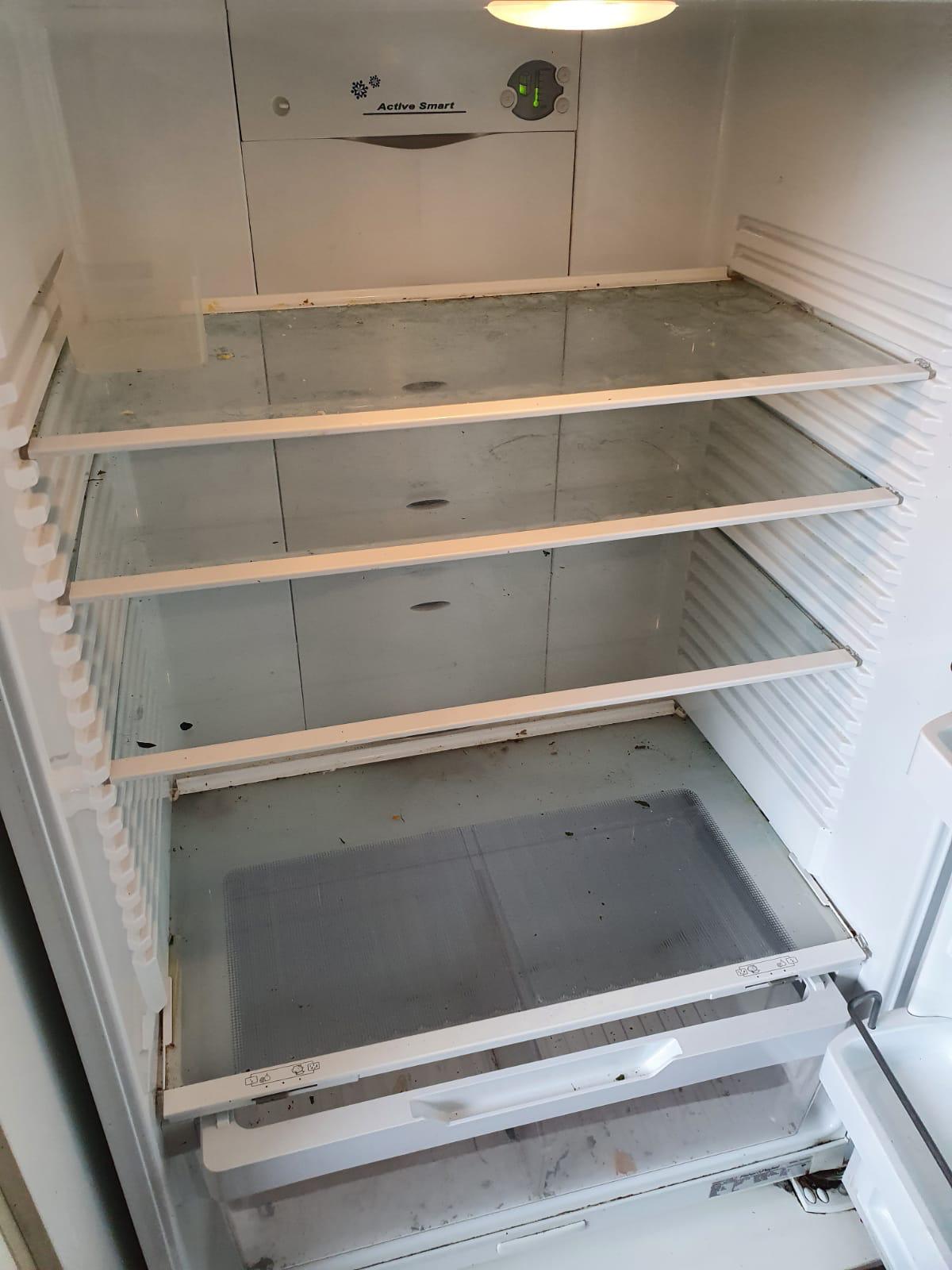
After
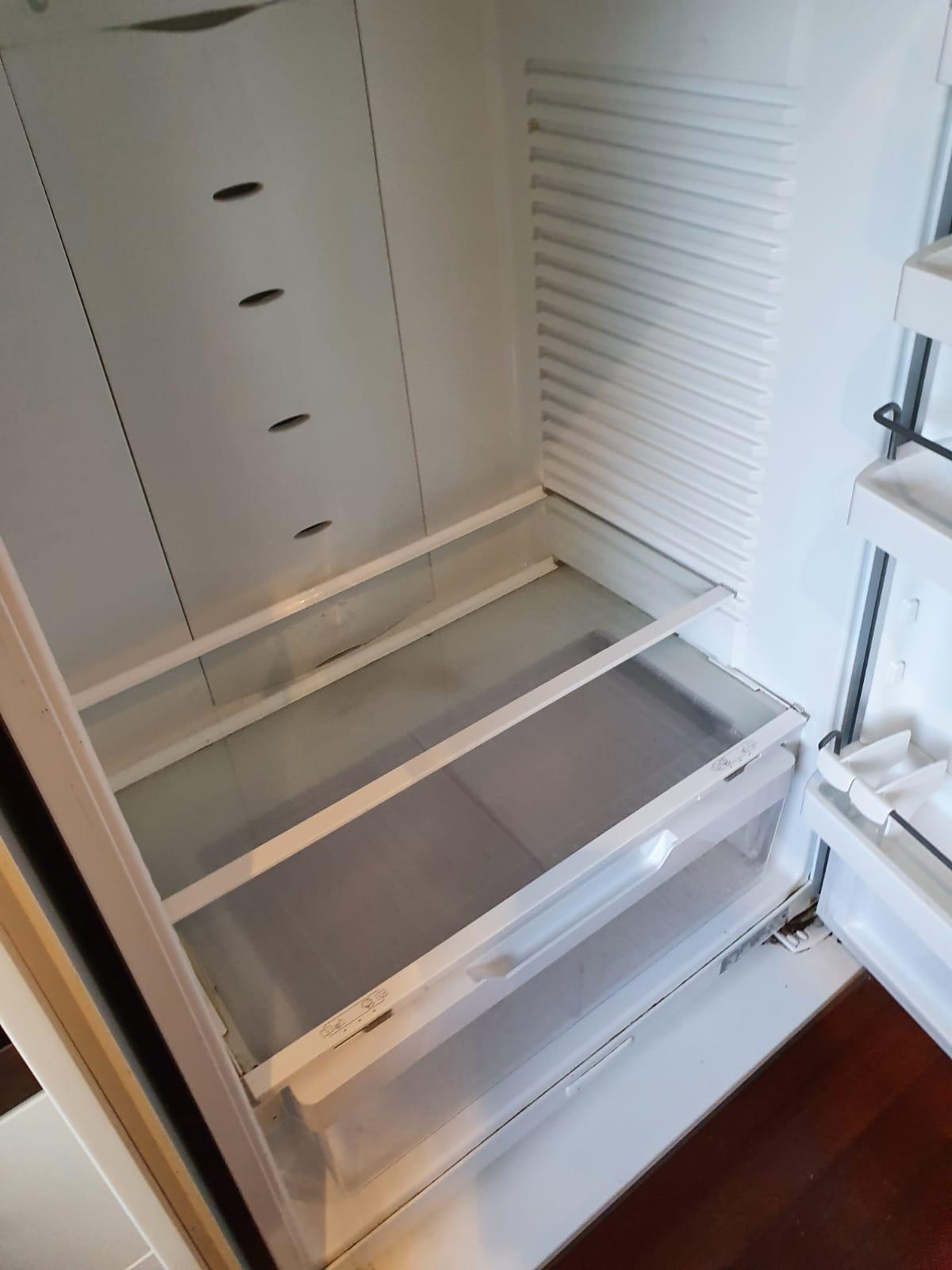
Top Tips For Cleaning Your Fridge
Before getting started, plan a date, and make a plan
Whilst it may be tempting to clean your fridge one shelf, or one drawer at a time, we recommend doing it all at once. By doing it all at once, you’re less likely to procrastinate as you won’t’ want the food in your fridge to go off while you’re cleaning it.
We recommend cleaning your fridge before a major shop. Doing so means your fridge will be at its emptiest. Plus, you will know exactly what you need before you do your grocery shopping. It makes preparing a shopping list easier. You will also be able to ensure all your new shopping ends up in a fridge that is clean and odour free.
Cleaning your fridge requires you to take everything out of the fridge. To avoid your food spoiling I would recommend preparing an esky with ice to store your food in whilst you are cleaning the fridge.
Check everything as you remove it. If food is out of date, then dispose of it. If not, put it in the esky until you have finished cleaning.
Take out and clean any removable shelves and drawers
There are likely removable shelves and drawers in your fridge. To make cleaning your fridge easier, you should remove these shelves and drawers. You should wash them thoroughly with dishwashing liquid (Quick note, if you have glass shelves you may want to let them come to room temperature before washing in hot water as not doing so can lead to glass shelves cracking.)
If you notice any residue build-up in any joints or crevices, I recommend using an old toothbrush to remove this residue. Once you have washed them and removed any residue, the next step is to rinse them and then dry your shelves and drawers. Leave them to dry whilst you start the next step in cleaning your fridge.
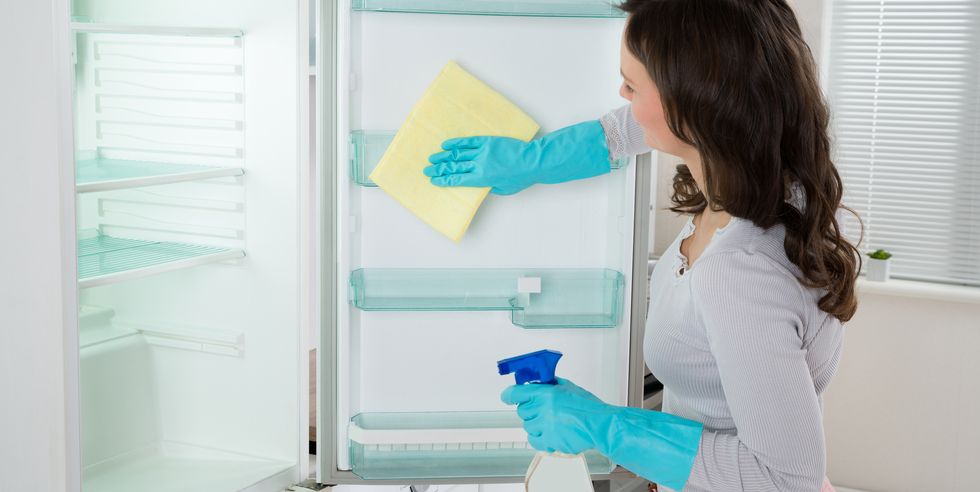
Credit: ANDREYPOPOVGETTY IMAGES
Wipe down the interior
Whilst you are waiting for your shelves and drawers to dry, it’s time to get inside the fridge, wiping down the surfaces and walls with cold water and some sort of sterilising agent. (Don’t use hot water as this will mean it takes too long for your fridge to cool down again before you stick your food back in.) As with the shelves and drawers, if there is any residue build-up, then get out the toothbrush to clean this out. Wipe down your surfaces with a clean, dry tea towel when you are done.
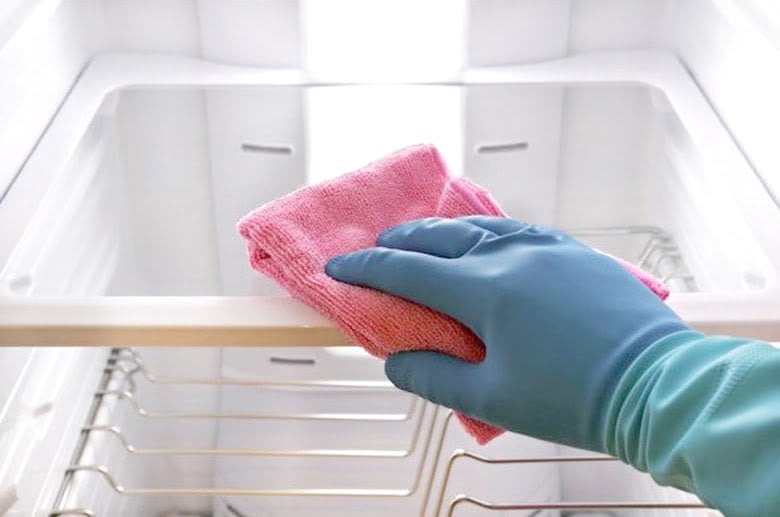
Source: The Organised Housewife
Clean outer surfaces
Once you have finished cleaning your fridge inside, it’s time to look to the outer surfaces. You need to do this for two main reasons. Firstly, you remove germ build-up on the most frequently touched surfaces. Secondly, as one of the biggest appliances in your kitchen, you’ll want it to look clean on the outside. Otherwise, it will make the kitchen look dirty and people will notice. Wipe it down and vacuum up any crumbs around the bottom and underneath if it fits.
Allow your fridge to cool before replacing food
The process of cleaning your fridge means you will have had some time with the doors open. Your shelves and drawers will also now be at room temperature. It’s highly recommended after you have finished cleaning your fridge that you allow some time for your fridge to cool down to 4 degrees before putting your food back in the fridge. This decreases the risk of food contamination.
If you follow these steps, cleaning your fridge should be a breeze. If, after reading this article, you are tired and have decided it’s better to outsource your home cleaning to the experts at Simply Spotless, then please don’t hesitate to get in touch today for a no-obligation quote. We can help you with your regular cleaning as well as fridge cleaning and other optional extras.
Looking for more helpful cleaning tips? Check out our blog here for a whole range or articles.
Book a home cleaning service or end of lease cleaner online instantly!
Book a home cleaning service or end of lease cleaner online instantly!
Check Out our Other Posts
Removing Odours From Your Bathroom
Removing odours from your bathroom isn’t a difficult task with the right methods and tools. Successfully removing odours from your bathroom can be achieved with a few household supplies. Let’s dive in.
Cleaning with Bicarb and Vinegar
Did you know that combining bicarb and vinegar creates a powerful cleaning solution capable of tackling many household cleaning tasks? Safe for your family, pets, and the environment, cleaning with bicarb and vinegar is an easy way to eliminate harmful chemicals from your cleaning regimen.
How to Remove Soap Scum
This post outlines different ways to remove soap scum from areas of your bathroom, like the bathtub, shower screen, and faucets or fixtures.
Home Cleaning Schedule
How often you clean your home depends on various factors such as household size, lifestyle, and personal preferences. However, when establishing a comprehensive home cleaning schedule, it’s essential to consider specific guidelines for maintaining different areas of your home:
How to Remove Dog Smell
Understanding how to remove dog smell is essential for maintaining a fresh and inviting living space. Fortunately, there are several simple steps you can take to combat and eliminate dog smells in your home for good.
Cleaning a Spa
Cleaning a spa bath is crucial. Without regular maintenance, your spa bath could be harbouring unseen threats beneath its soothing jets. Learn how to clean a spa bathtub here.
How to Use a Steam Mop
If you’ve ever wondered how to use a steam mop efficiently then you’ve come to the right place. In this guide, we’ll not only answer that question but also provide you with step-by-step instructions and valuable tips.
Cleaning Stainless Steel
Cleaning stainless steel isn’t just about aesthetics; it’s about maintaining the integrity of these sleek surfaces. Without proper care, stainless steel can lose its luster, making it look dull and dingy.
Learn How to Clean Your Coffee Machine for the Best-Tasting Brew
We’ll guide you through the step-by-step process to clean a coffee machine to ensure that every cup of coffee you brew is as delicious as it should be.
How to Clean a Wheelie Bin
Cleaning a wheelie bin may not be the most thrilling task, but the payoff is definitely worth it. Plus, the more frequently you clean a wheelie bin, the less you’ll have to endure those unpleasant odours.


